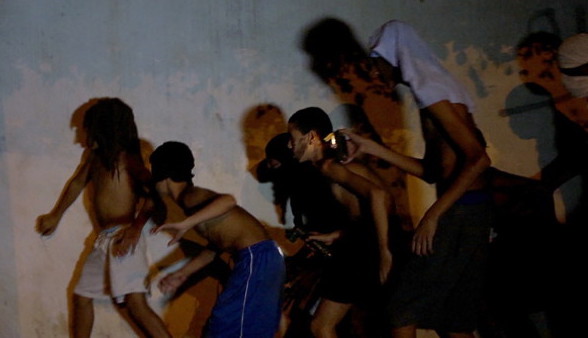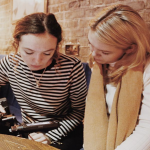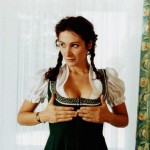By Jessica Duncanson
Shubbak Festival interview
Bloody Beans is an experimental take on the Algerian War, which sees the conflict played out by a group of vibrant children. Incorporating unique lighting and sound, the film is a complex exploration of colonial powers and the fight for freedom.
The director Narimane Mari discusses the film’s issues and unique style.
Why did you decide to use children to tell the film’s story and how did you discover such vibrant child actors?
The point of view of children allowed this subject to be transported where I wanted to place it, in a surreal environment, because being subjected to colonialism or domination can only be perceived in this way. In childhood, courage is based mainly on the desire for survival and not on the adult ideology of political engagement. The simple desire to live is enough to want to be free. The children are also the bearers of contemporary Algerian history and provide a way of speaking about the present of Algeria, showing those living forces that also suffer from abandonment.
These children, as magical and powerful as they are, still do not have the support of the state to offer them a future. They are left on their own and they have to manage by themselves. I found them on the streets and beaches of a popular district of Algiers. None of them were actors. We worked for several weeks to get to know each other and to play together especially. No script reading, nothing imposed, especially not words and language. Just the game and the pleasure to experience this adventure together. The parents were great and were glad to see them give so much.
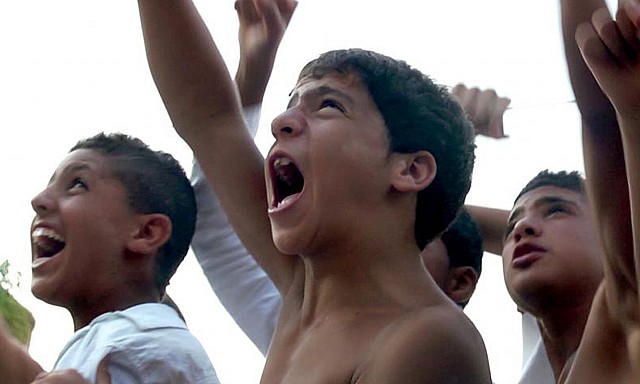
There is a sense that the children are just playing war, and this contributes to the overall absurdity. Was the children’s innocence, and their hatred of beans, also intended to convey the absurdity of war?
Beans are a humiliating food mainly because they give us tummy aches and make us fart; which is very shameful in Muslim culture. To dominate someone is to humiliate them. It’s still fun as a metaphor for children. And yes it is absurd, because it is impossible for me to stage the realities of a war. Playing it is already difficult. But the war is not absurd, it is tragic and human beings maintain a powerful ability to survive. They do whatever they can, and kids use their imagination to survive.
Yesterday I saw a woman who had lost five members of her family in Mosul, only her husband and daughter remained. She had no legs, cut up the thighs after the explosion of a human bomb. I saw her find the strength to smile and amuse herself with his enormous handicap with the person who helped her to regain possession of what was left of her body. That’s mostly what I wanted to show; that the war cannot annihilate what we are, even if it leaves only one tiny piece of ourselves.
By the way, the beans in red sauce cooked in Algeria are delicious.
As French-Algerian yourself, the issue of war and colonialism must be quite personal issues. How do you think this impacted the film?
Of course it’s personal. And it’s impacting the movie. But I’m sure it becomes personal for anyone. You must have felt or even suffered the desire of a family member or colleague to dominate you. There is not enough space for you to know yourself and freely develop. Colonialism is just the place where this terrible thought is at its peak. The subject of the film is to resist and to free oneself from it.
From domestic violence to women’s place in war, the film deals with issues of gender. Why did you want to explore this?
It’s not my subject. Algerian women were great revolutionaries and took part in the war in the same way as men. The woman gets beaten in the film because she had fallen in love with an Algerian. A French woman in love with an Algerian; it is impossible for this man to bear this idea. It is the story of my mother, who was rejected by her family until today.
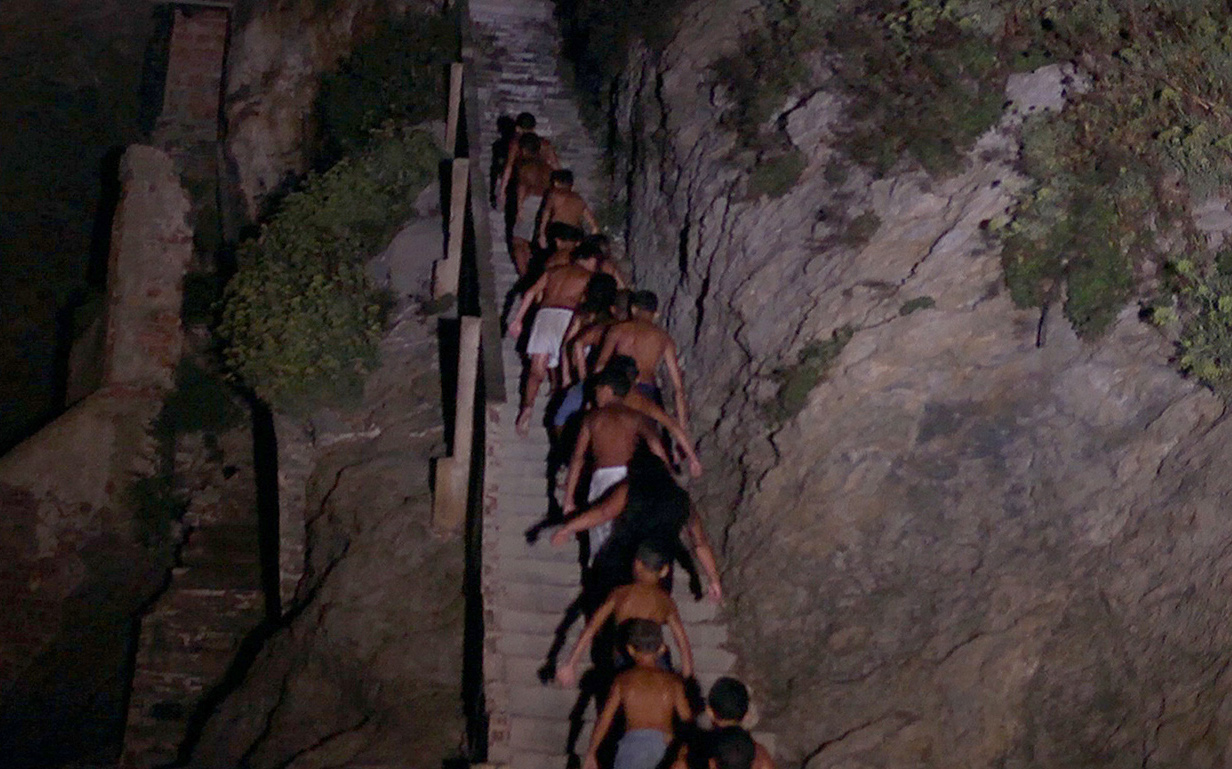
The film has many surreal elements in terms of lighting and dialogue, and it feels like some kind of hallucination at times – what inspired you to adopt this style?
I think that’s how I see the world. My new movie is like that too. We used flashlights for the lighting, and though the dialogues are written, they are based on the way they speak. It’s a very simple way to work, but also very open to everything. I produce very realistic documentaries, but I am unable to reconstruct the real. It is as if I am amputating the life of these multiple dimensions. The imagination, the sensual perceptions, the unknown languages of life; I try to find them and show them.
The children narrate a poem by Antonin Artaud at the end, which asks – ‘Is it better to be than to obey?’ – what does this line mean to you and why did you use it in the film?
As the film is committed to expressing freedom, I consider that the one who went furthest to express it in a literary work is Antonin Artaud. At the price of madness. And this poem goes so well with the children who disobey and then that saves them. Us, too, right?
Are you currently working on any new projects?
I just finished Le fort des fous, which is currently shown at Documenta 14 in Kassel and Athens. I have worked even more on this “entanglement” of memory, history and reality.

